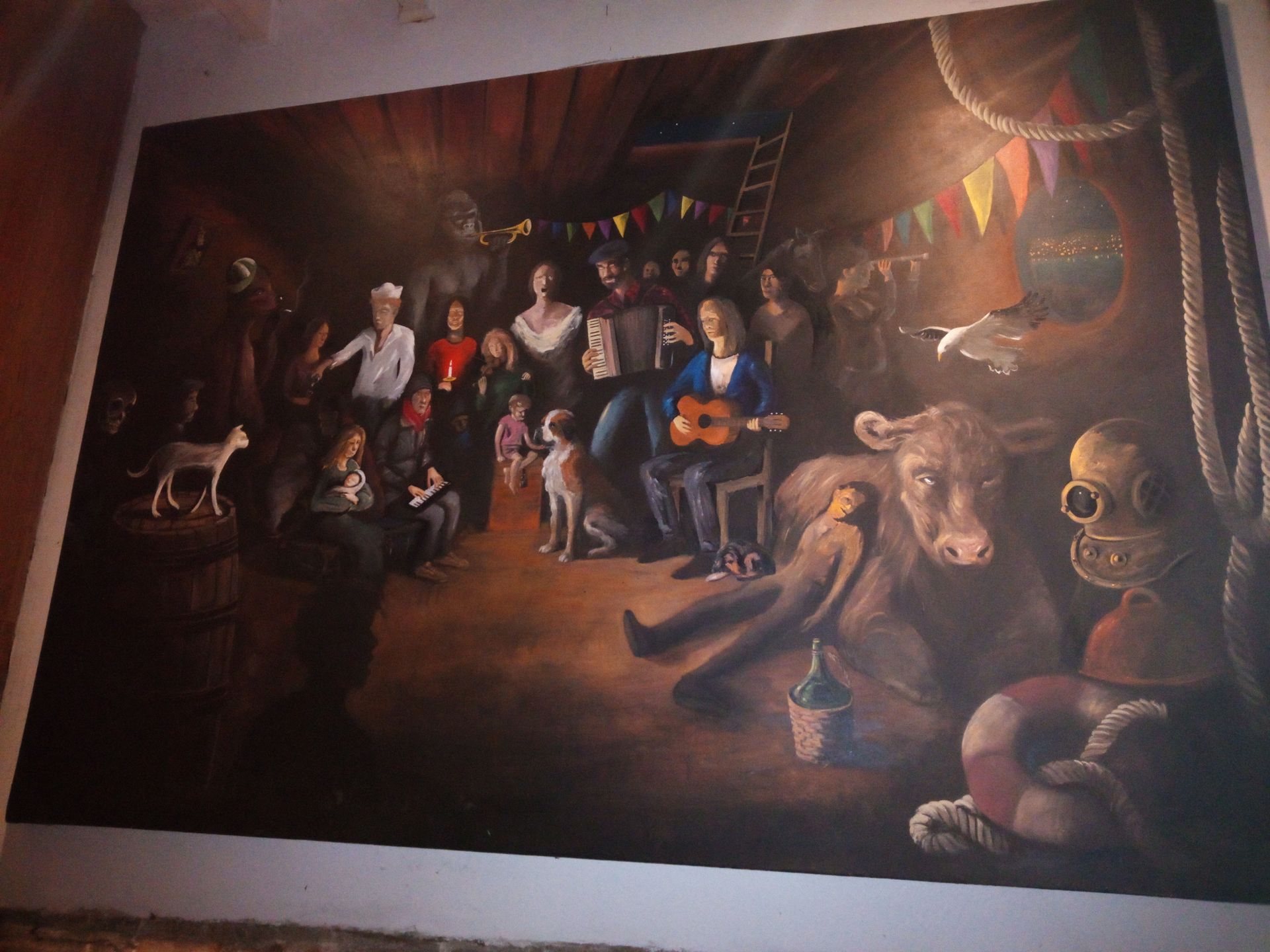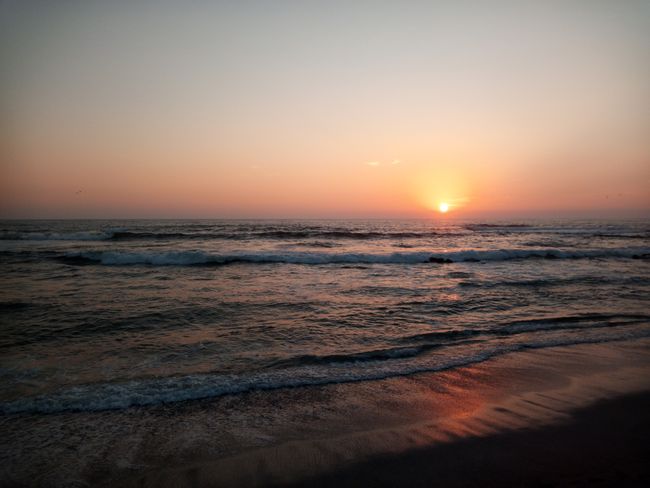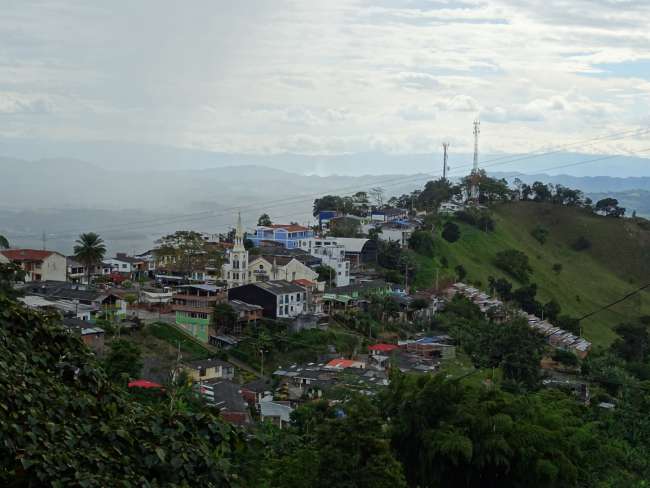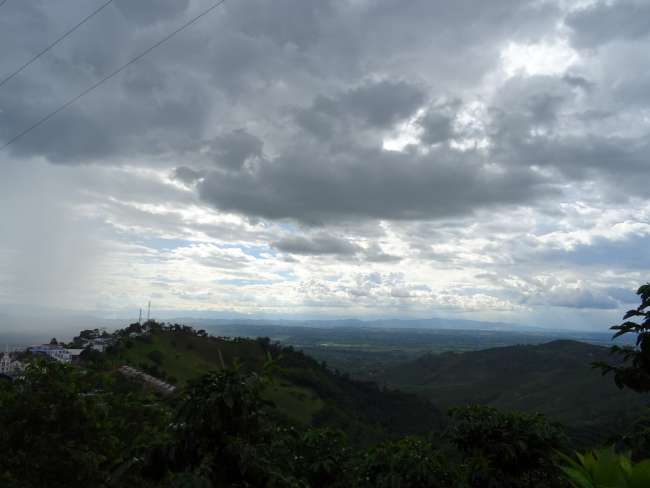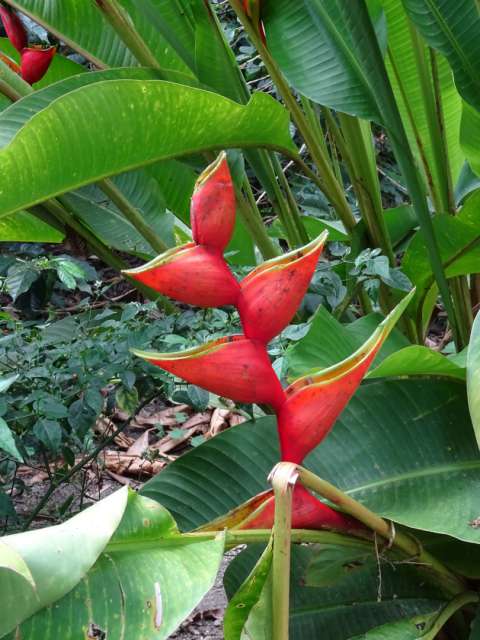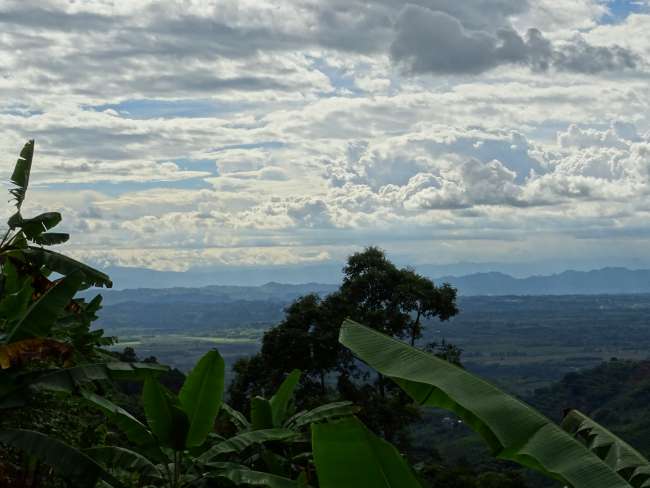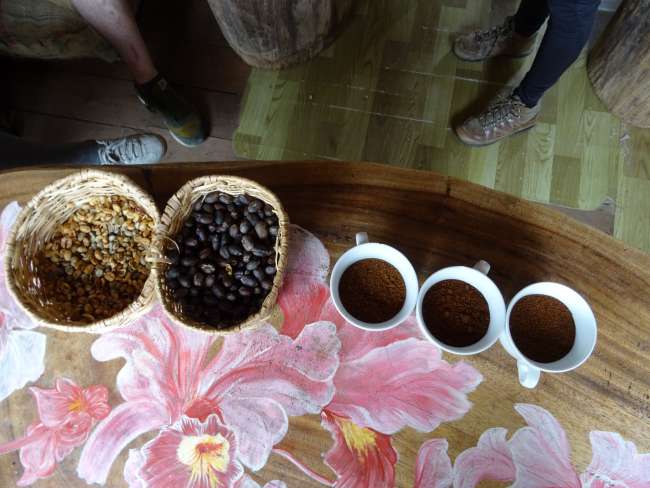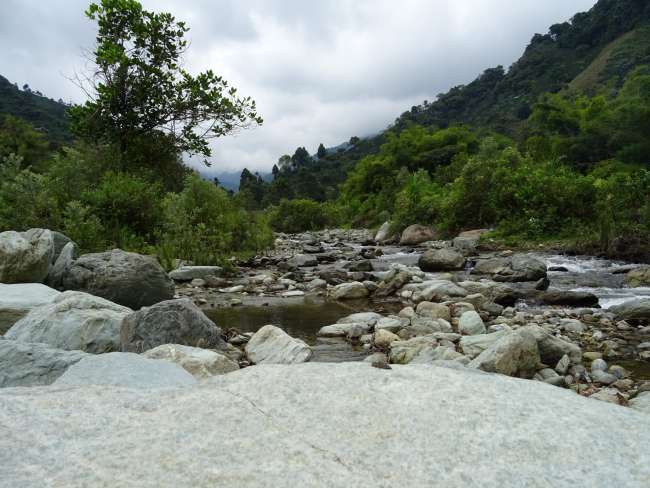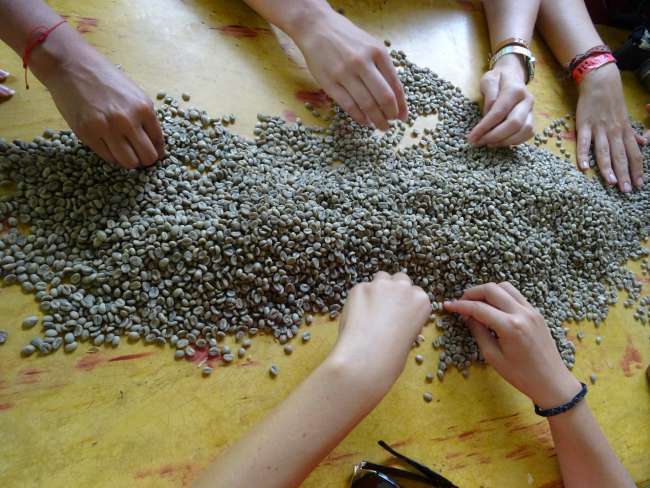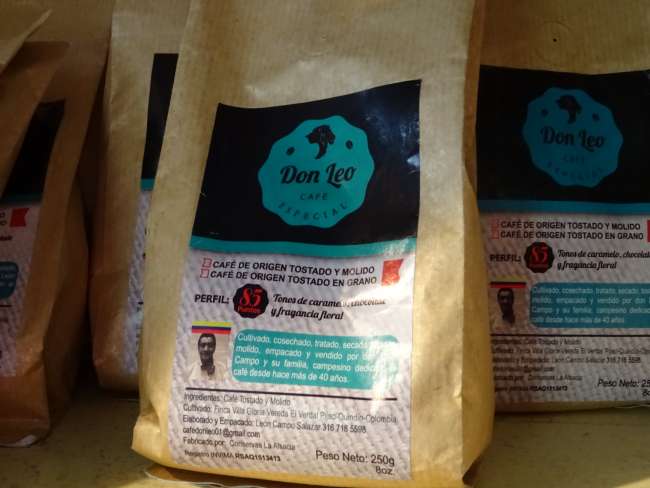The good / To coffee with guerrillas
प्रकाशित कीता: 29.07.2017
न्यूज़लेटर दी सब्सक्राइब करो
This year is the first Independence Day in 15 years that the people in southwestern Colombia can celebrate without fear. Even if the peace with the FARC rebels seems very fragile in the shadow of constant corruption. And here I am. On the most decisive day in the new history of Colombia. PARTY!!!!.....or.....what??
In the center of coffee cultivation, far away from everything, one thing happens above all, namely nothing!
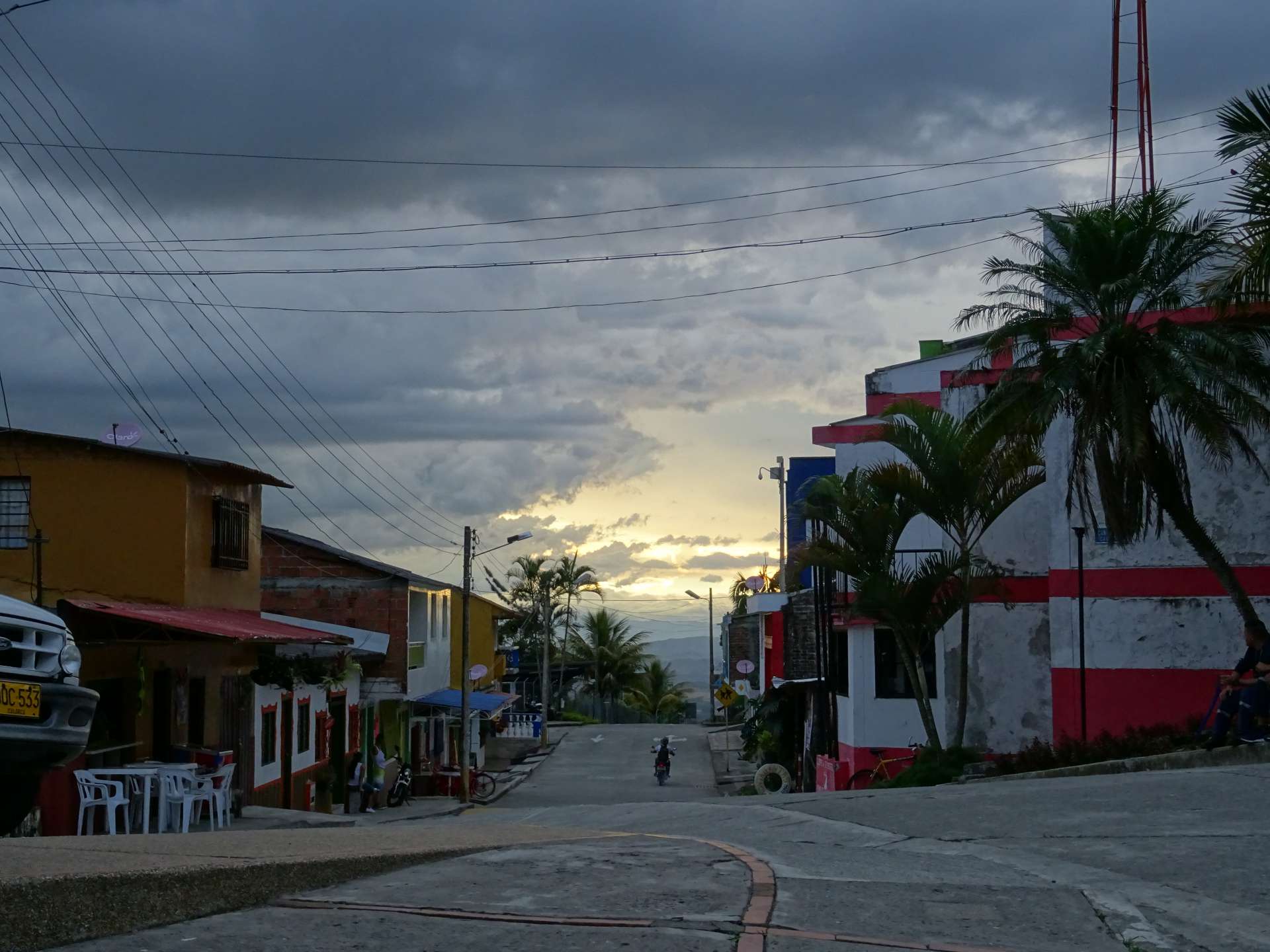
Buenavista. Approximately 2500 inhabitants and after 22.00 you don't hear a single dog barking. The silence is eerie and comforting. Hard to imagine that rebels spread fear here not long ago.
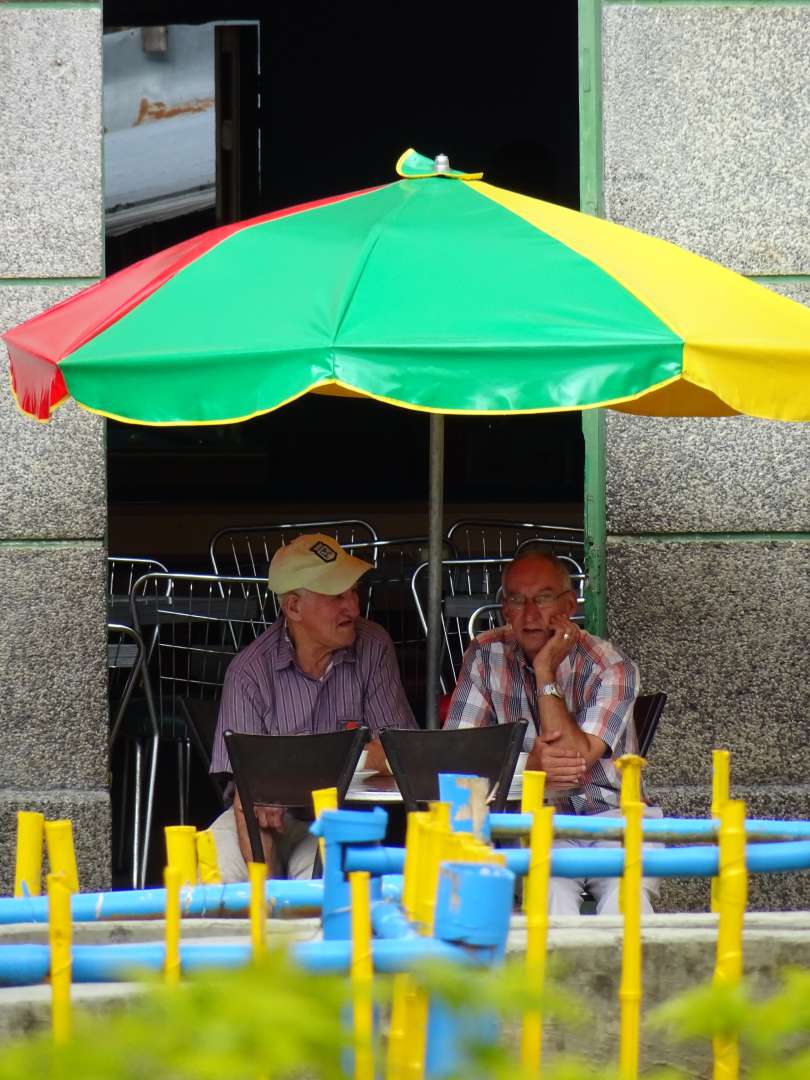
A village further with the Jeep, 30 minutes past coffee fields. Pijao. Nothing here either, except peace and quiet and people who give you a smile when you greet them. Well, almost everyone.
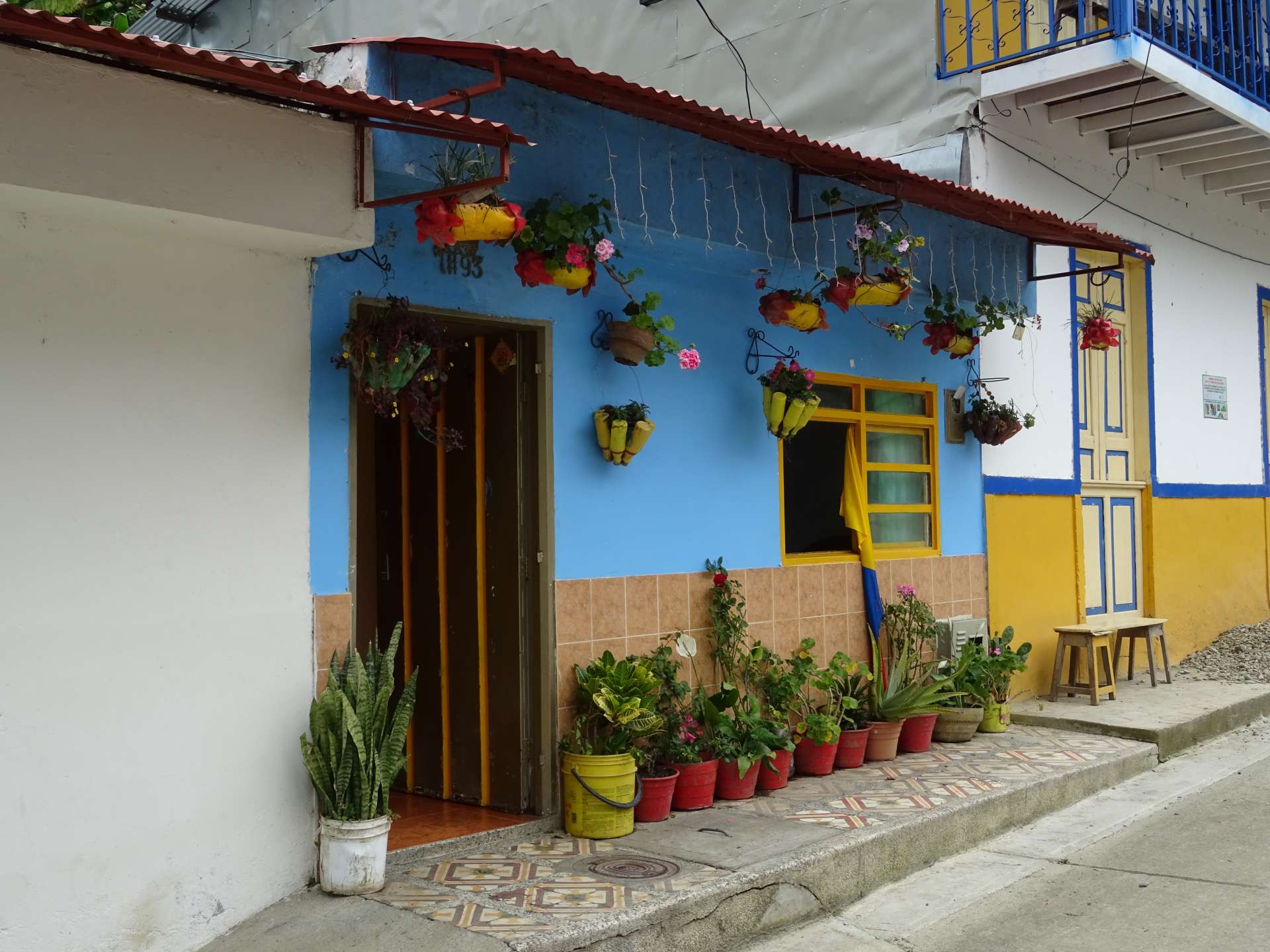
Not even a year ago, the scene of forced recruitment by guerrillas. Today everything looks like it's from a holiday catalog.
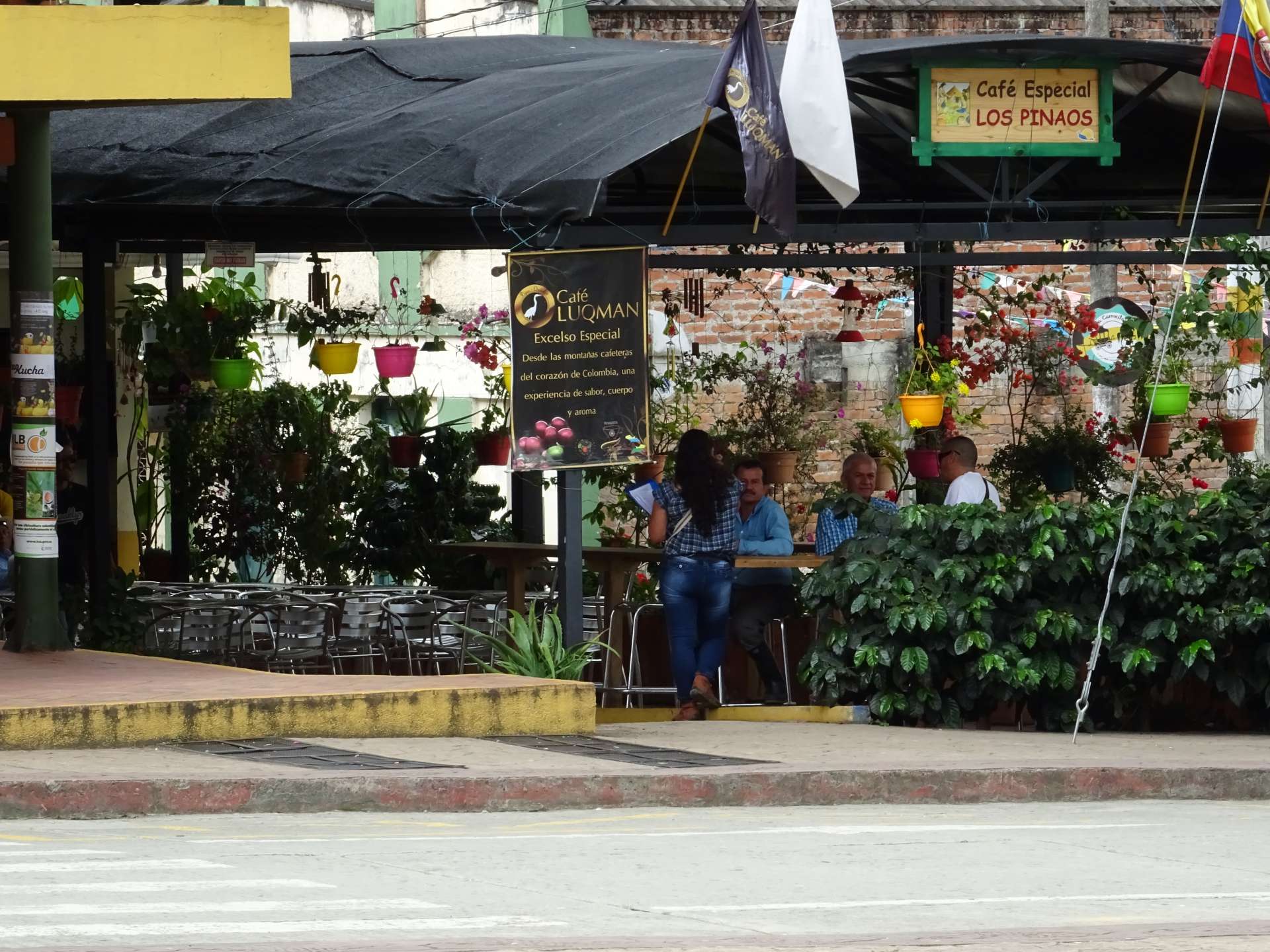
The bar in the village center. Decorated with flags, music playing, preparations for the festival of the year....Or...nothing!

A village, two discos. As I was told, you go to these to meet people, and when it gets serious, you switch to the other. Everything is in order here, and where is everyone actually?

No, there is no bus coming, and yes, he has been sitting there for a long time.
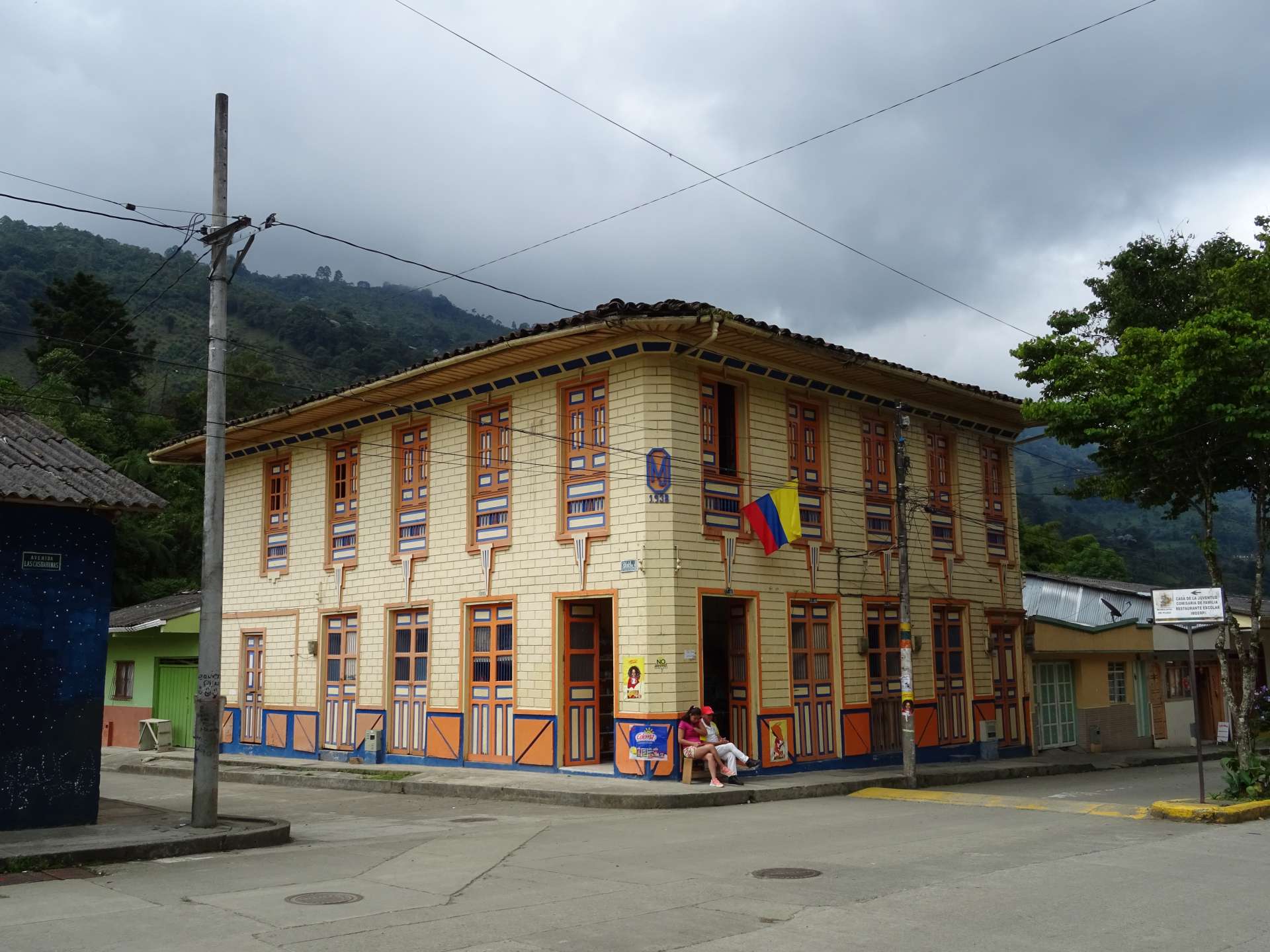



I think her name was Valentina. Our coffee guide. Her English with a trained American accent made me smile, and the almost whispering tone when she spoke about the time of the guerrilla attacks, as well as the pride in her voice when she spoke about Simon Bolivar, made me pensive and hopeful at the same time.
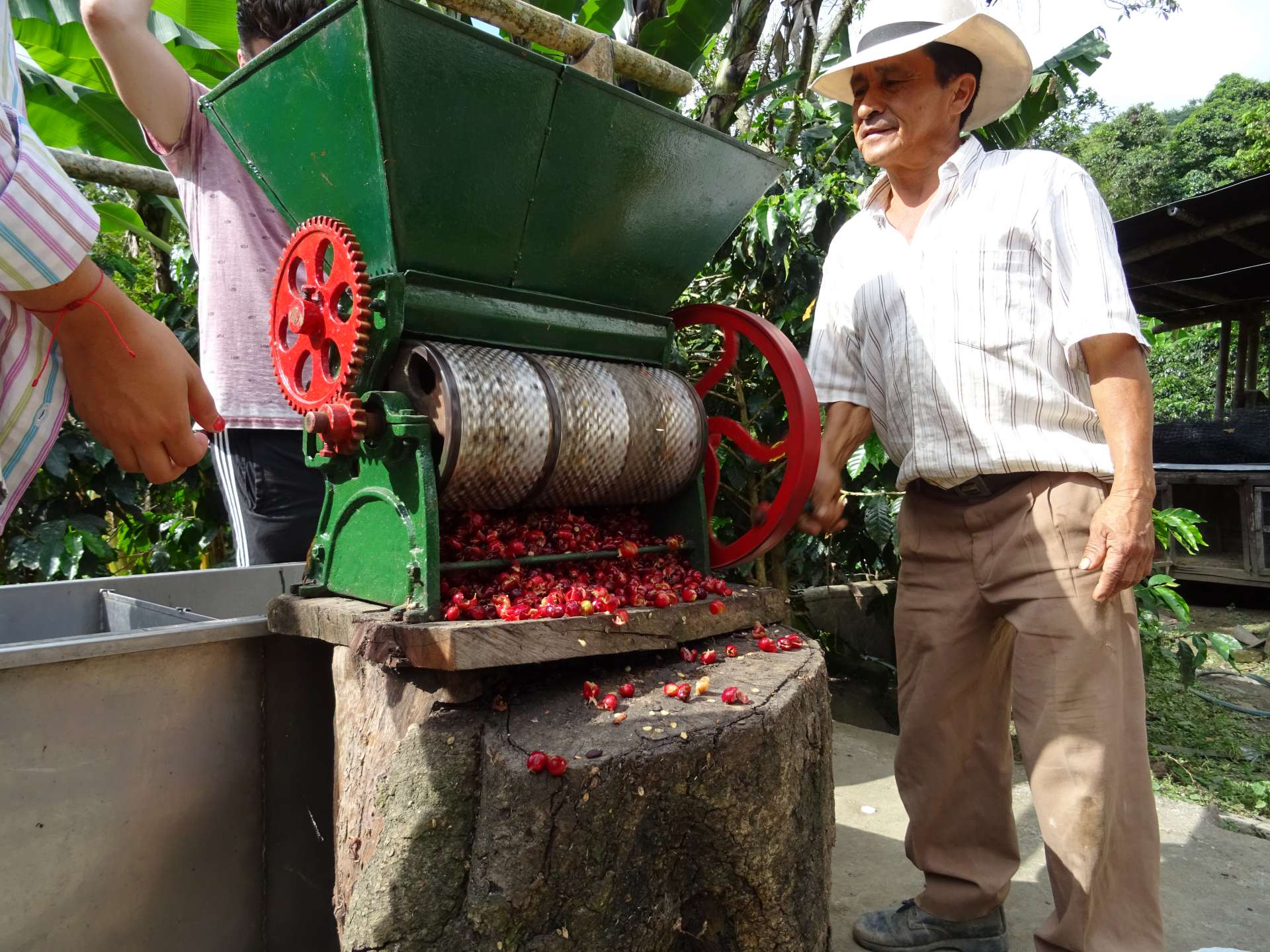
Ladies and Gentlemen!! Don Leon!!!! Coffee baron extraordinaire! He taught me what goes into Nescafé. And well...that's like the McDonald's law. If you like it, don't ask what's in it.
Don Leon is also the proud owner of a coin collection that he enthusiastically collects from tourists all over the world. His plantation was used by the FARC 10 years ago. Now he proudly shows his coffee plants.
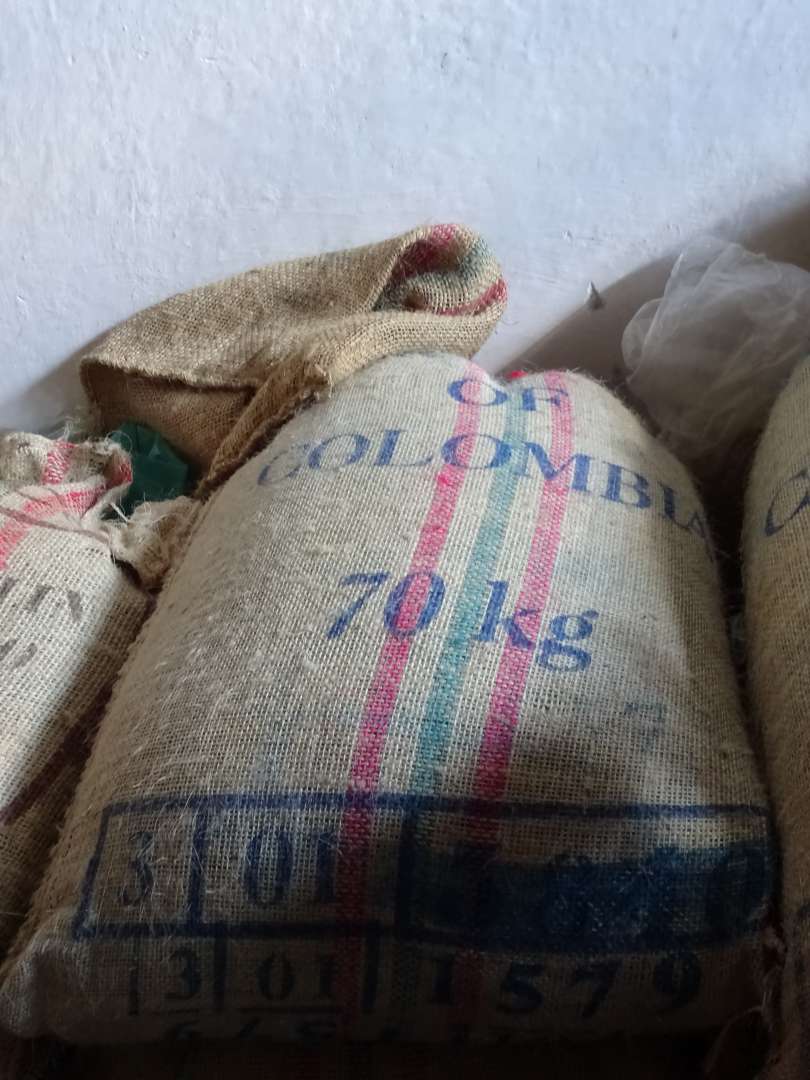
For a 70 kilo bag of premium coffee and a week of work, the coffee farmer receives about 150,000 pesos. That's about 50 dollars, a good income for Colombian standards, thanks to high demand and support from an association.
The question of why the big party is not happening here, even though there is reason to celebrate, would only become clear to me in Medellin. But more on that later. One thing, however, quickly becomes clear to me. Only good things can be found here, in the landscape and in the people.

Buenavista. Living up to its name.

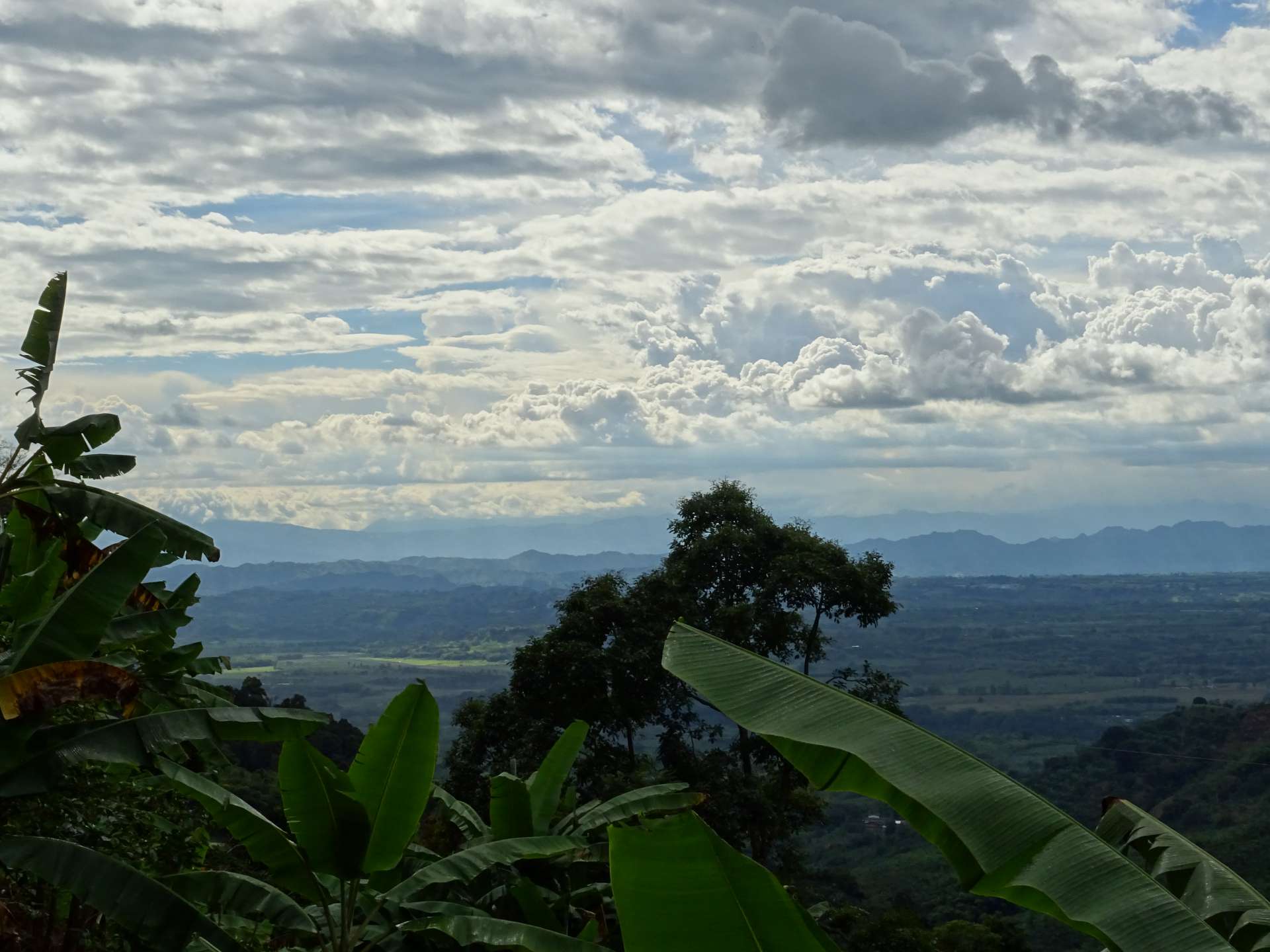
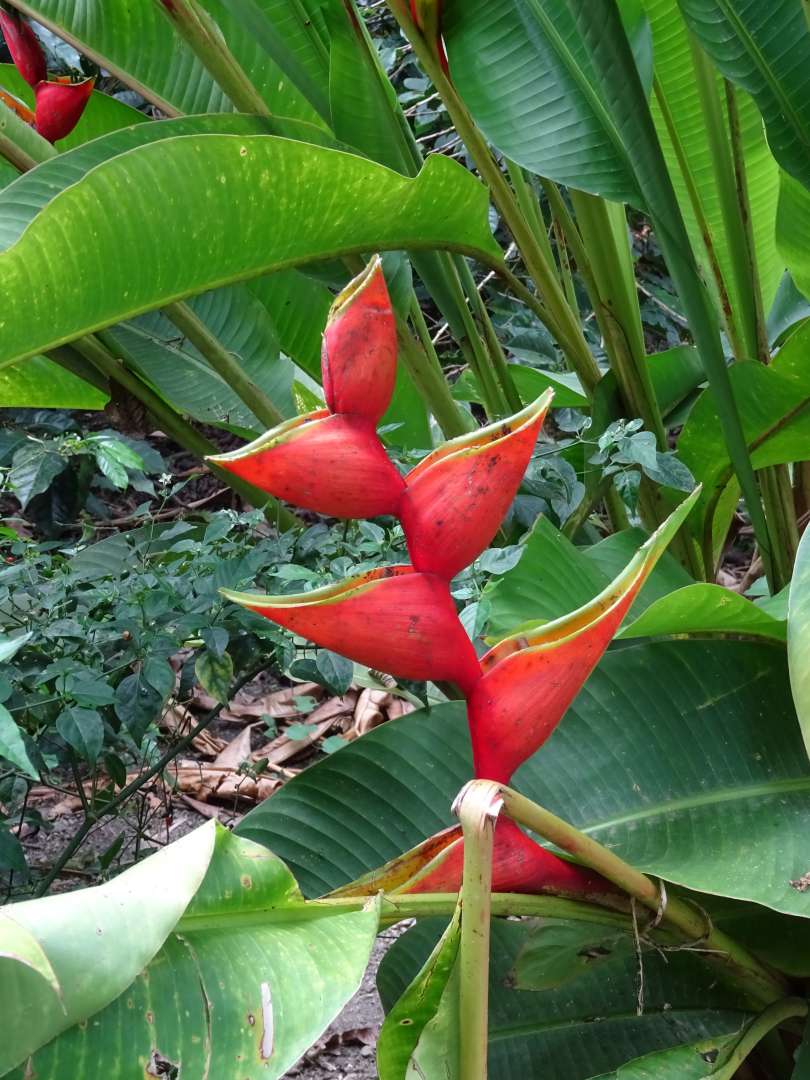
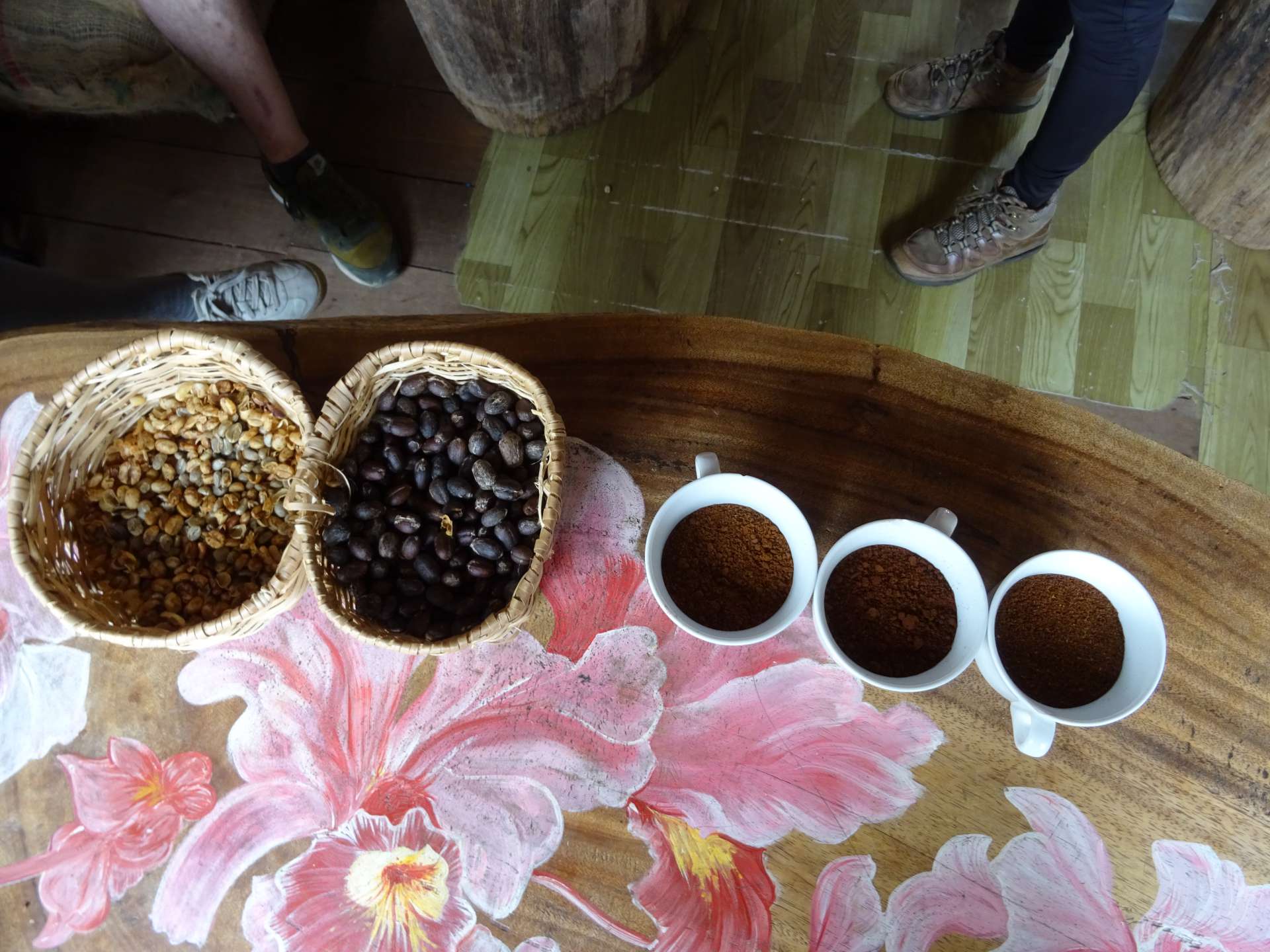
Colombian coffee tasting. If you want to see the host outraged, order milk and sugar in addition.
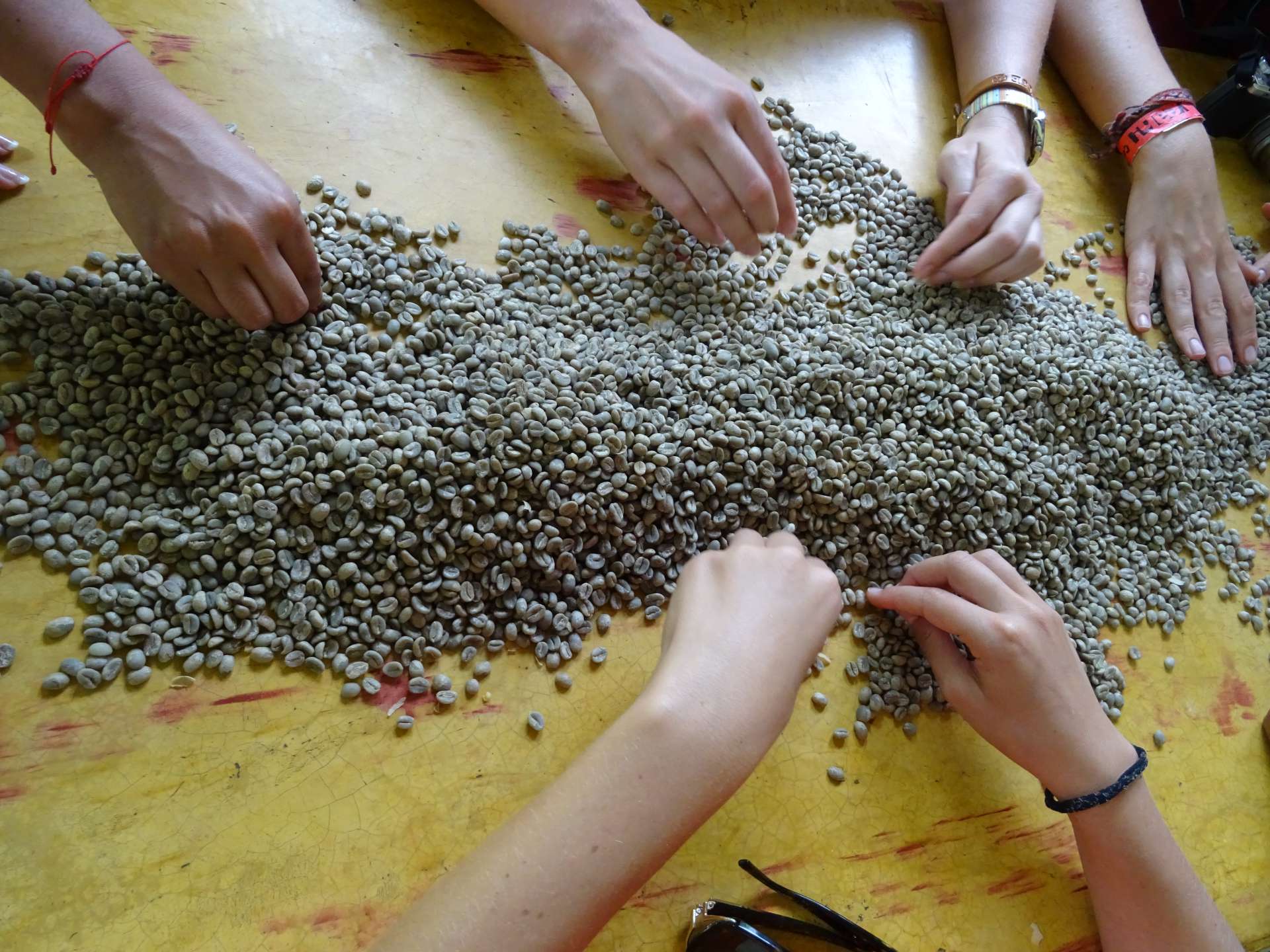
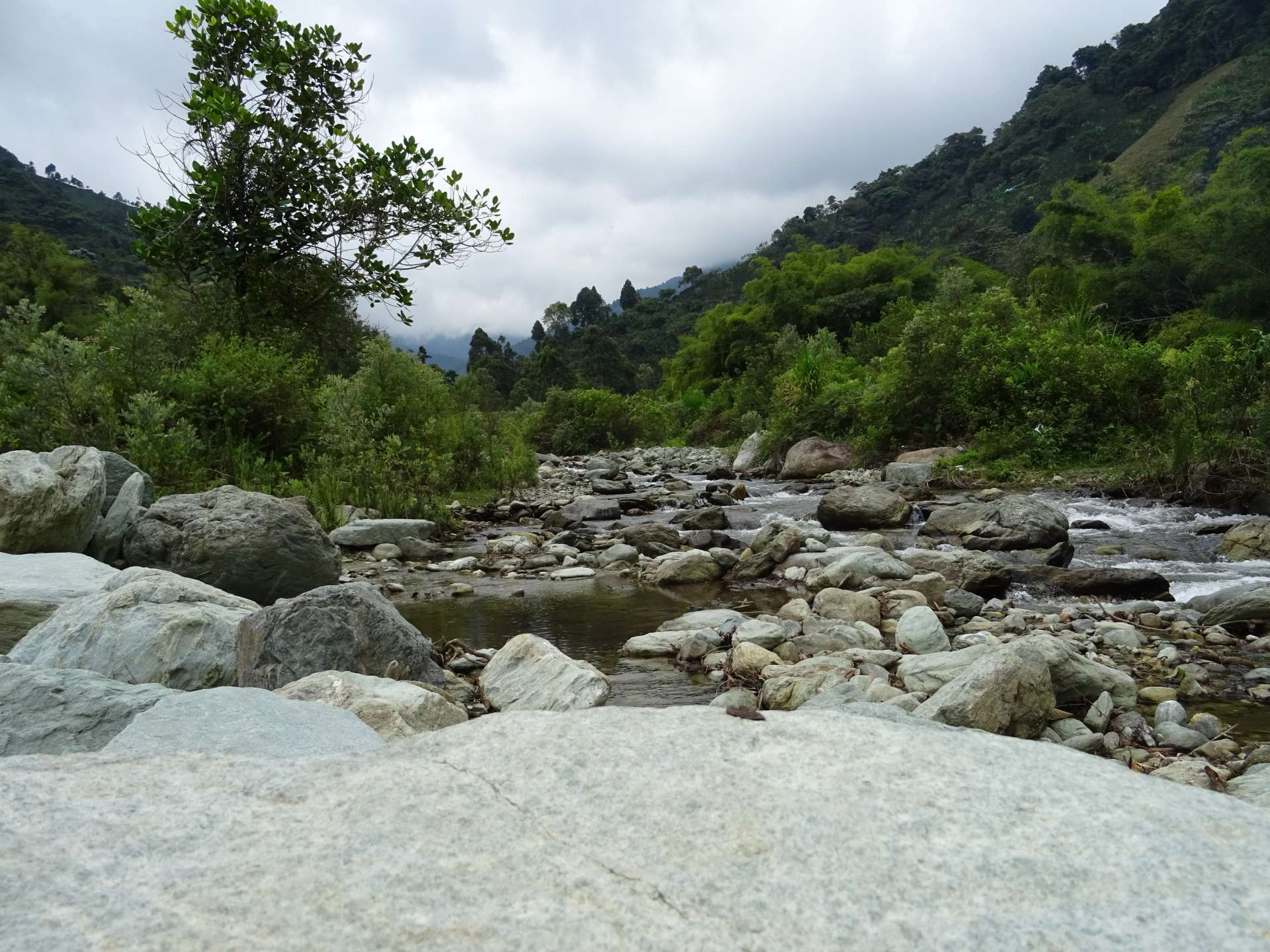
Diverse and fertile landscape. Perfect for coffee cultivation.
At the end of the tour, Valentina's partner, Alejandro, shows me photos of the guerrilla camp while we have a cup of Colombian coffee. He shouldn't have been there. But through his connections to the guerrillas, it was possible.
I knew I wasn't allowed to photograph the pictures, unfortunately, and I was even less clear about what exact role he had in the guerrilla story. I had wondered how one could casually stroll into a guerrilla camp with a camera if you don't belong there? I didn't ask him.
UN vehicles can be seen, government representatives, army and of course FARC commanders. The faces...serious but not hostile.
According to him, the guerrillas were given the task of drawing pictures on the day the camp was dissolved, depicting what peace means to them. It was a strange situation, seeing iron fighters painting, peeling potatoes, singing and dancing when they see their families again after seven or ten years or embracing foreign soldiers. And yes, it's true. It somehow looks unreal in the pictures.
But he still doesn't fully trust the peace, it's just paper after all. Nevertheless, everything felt so...good, so normal, so human to him. It sounds like a plea, like an attempt to convince that they are human beings and not monsters.
On the way back to the hostel, he briefly tells me that he has plans. He wants to promote tourism more and support the coffee farmers in being able to market themselves.
To become independent from big corporations. This is his contribution to peace.
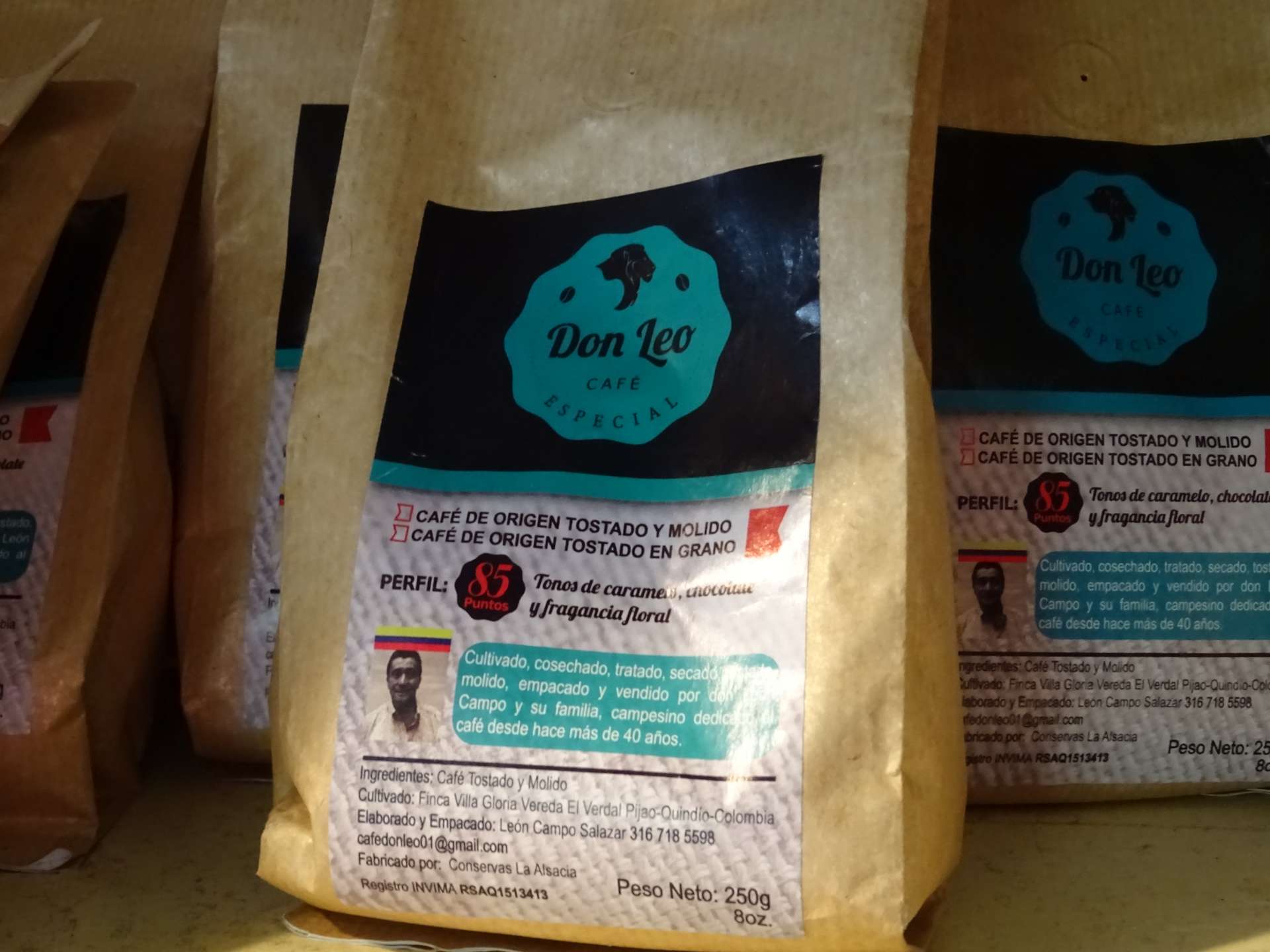
Don Leon. His photo on the coffee. His product. Currently, broad marketing is difficult.
Once, the FARC fought for farmers like him to have a better life. The ideology faded with the drug trade and with it the support of the population. The FARC lost sympathy. The beginning of the end.
The southwest, the heart of Colombia, the coffee region and formerly FARC territory. Everything here really feels good. Only in moments when people speak quietly and cautiously about peace, there is a slight feeling of insecurity amidst the great hope.
न्यूज़लेटर दी सब्सक्राइब करो
परता
